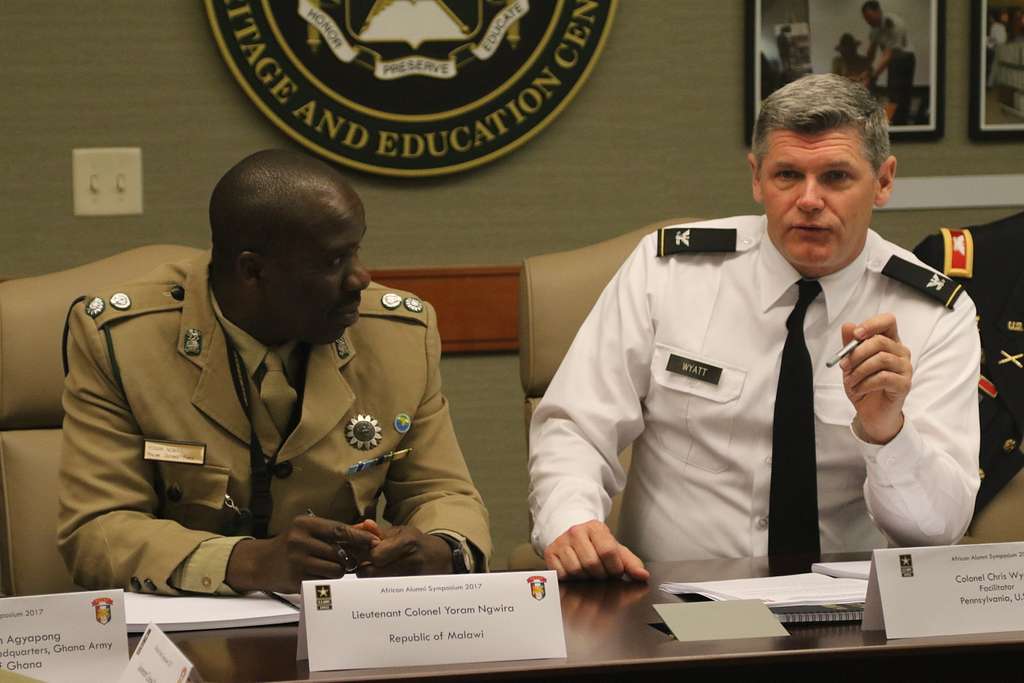Colonel Wyatt Analyzes eNCA's Afrikaner Refugee Interview: Commendable Effort, Critical Flaws

Refuge For Afrikaners
6/11/2025

South African media outlet eNCA recently aired an interview with Errol Langdon, one of the first Afrikaner refugees resettled in the United States. While securing such an interview is a notable journalistic effort, a recent analysis by retired Colonel Chris Wyatt highlights several significant issues with eNCA's reporting and the framing of the piece.
At Refuge for Afrikaners, we believe it's crucial to examine these points, as they touch upon the core understanding of the U.S. Refugee Admissions Program (USRAP) relevant to our community and the broader discourse surrounding it. Colonel Wyatt, with his background, offers a valuable perspective on the legal and procedural nuances often missed or misrepresented.
Colonel Wyatt's Key Criticisms of eNCA's Reporting:
Based on Colonel Wyatt's analysis, the following areas in eNCA's coverage are problematic:
Misunderstanding U.S. Refugee Law vs. UN Definitions:
Wyatt's Point: eNCA referenced the UN definition of a refugee. However, the U.S. program for Afrikaners is governed by specific U.S. legislation (Immigration and Nationality Act of 1980), not UN protocols. The U.S. determines refugee status under its own sovereign laws.
Inaccuracy on Trump's Executive Orders (Asylum vs. Refugee Program):
Wyatt's Point: eNCA incorrectly stated President Trump suspended "asylum seekers and refugees." Trump's executive order temporarily suspended the refugee admission program, not the ability for those legally in the U.S. to apply for asylum. This is a fundamental legal distinction.
Misrepresenting the Scope: Not Just "Afrikaner Farmers":
Wyatt's Point: eNCA's framing leaned towards the program being for "Afrikaner farmers." The actual executive order (as per Wyatt's reference) was for Afrikaners suffering unjust racial discrimination, a broader and more specific criterion than just farming.
Gratuitous and Unnecessary Historical Slant on Location (Alabama):
Wyatt's Point: eNCA prefaced their Alabama segment with a comment about it being "one of the most segregated states." Wyatt deems this a "cheap shot," irrelevant and inflammatory, questioning if similar negative historical framing would be applied to South African locations.
Problematic Questioning on "Prioritization" Over War Zone Refugees:
Wyatt's Point: The question posed to the refugee about feeling "prioritized" over those in war zones demonstrates a misunderstanding of how U.S. refugee admissions operate with various concurrent programs and regional allocations. It also emotionally pits groups against each other.
Misleading Questions Regarding "Color" and Program Inclusivity:
Wyatt's Point: eNCA's question about whether the offer should be "extended to everybody regardless of their color" ignores the fact that U.S. refugee law (the Immigration and Nationality Act) is already color-blind in its foundational principles. The current program addresses a specific persecuted group, which is a common practice in refugee admissions.
Omission of Context for Program Suspensions and Other Admissions:
Wyatt's Point: eNCA, like much media, failed to provide context for why general refugee programs might be suspended (e.g., Wyatt's allegations of corruption/illegality in previous administrations). He also highlighted the media's differing reactions to large-scale admissions of other groups versus the intense scrutiny on a small number of white South Africans.
Undermining Refugee Legitimacy: "Political Pawns" and Quotation Marks:
Wyatt's Point: eNCA's questioning about being "political pawns" and, critically, their on-screen use of quotation marks around the word "refugee" is disingenuous and dishonest. These individuals have been legally granted refugee status by the U.S. government. Disagreement does not negate this legal fact.
Acknowledging Effort While Demanding Accuracy
Colonel Wyatt does commend eNCA for the effort in securing the interview and notes the interview itself appeared largely fair to Mr. Langdon. However, the surrounding commentary and framing presented by eNCA are, according to his analysis, riddled with significant errors and misleading implications.
These are not minor quibbles. They go to the heart of understanding U.S. law, the specific nature of this refugee program, and the public perception shaped by media reporting. Whether these inaccuracies by eNCA stem from a genuine misunderstanding or an editorial choice, they contribute to a confused and often biased narrative.
For the Afrikaner community and all interested parties, relying on accurate information is paramount. Colonel Wyatt's breakdown serves as an important corrective to the eNCA piece, emphasizing the need for media to be precise and well-informed, especially on complex international legal matters.
Refuge for Afrikaners supports calls for factual and unbiased reporting. We encourage our readers to consider these analytical points when consuming media coverage on this vital issue.
What are your takeaways from Colonel Wyatt's analysis of the eNCA interview? Share your thoughts.
Watch Colonel Wyatt's video here:
Stay Updated on news about President Trump's Executive Order on Addressing Egregious Actions of the Republic of South Africa
Subscribe to our newsletter for the latest resources and community updates.